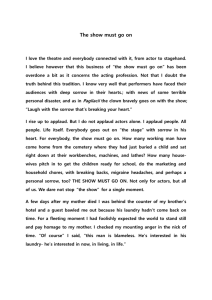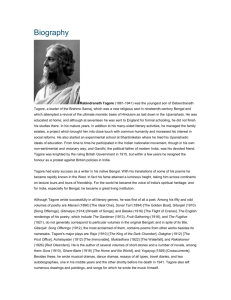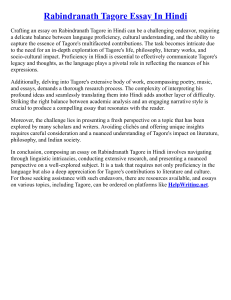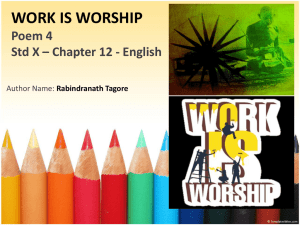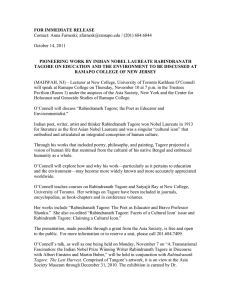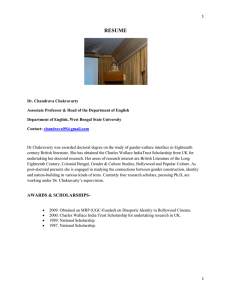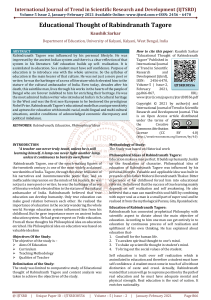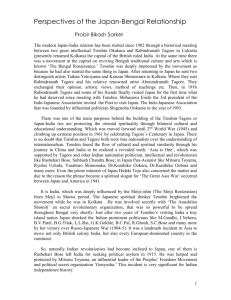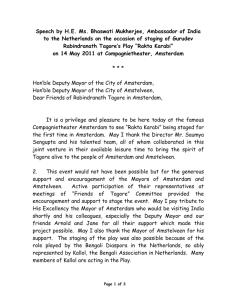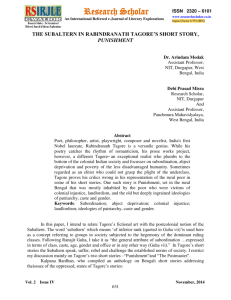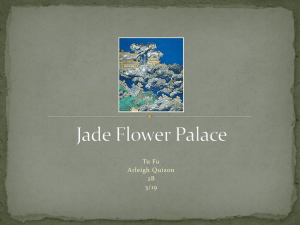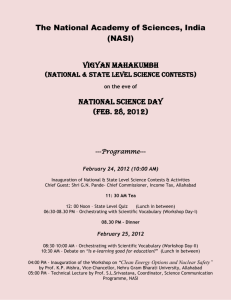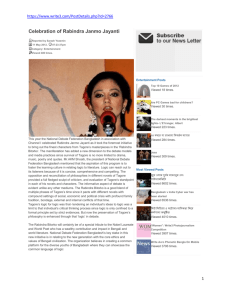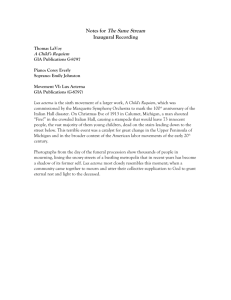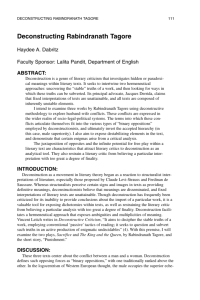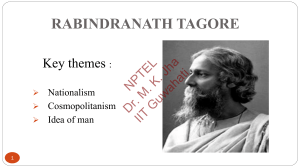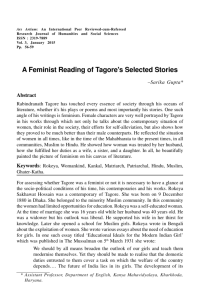Where the mind is without fear
advertisement
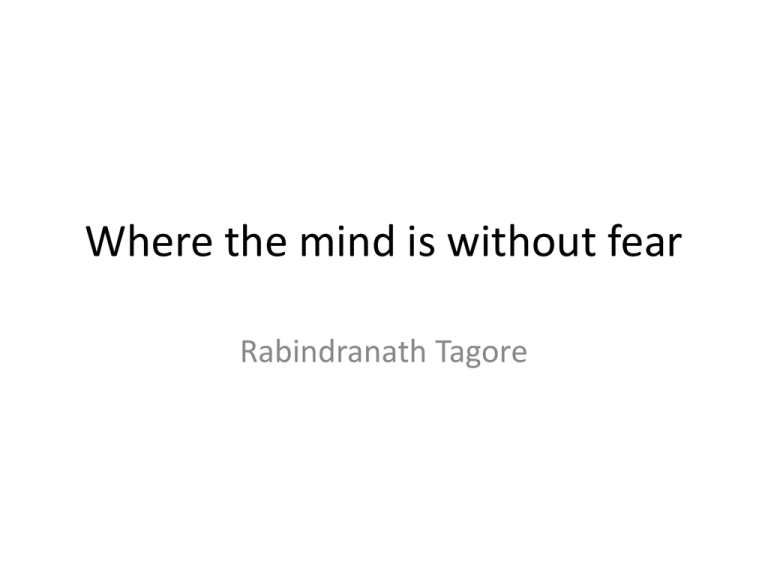
Where the mind is without fear Rabindranath Tagore Text • Where the mind is without fear And the head is held high Where knowledge is free Where the world has not been broken up Into fragments by narrow domestic walls Where words come out from the depth of truth Where tireless striving stretches its arms towards perfection Where the clear stream of reason has not lost its way Into the dreary desert sand of dead habit Where the mind is led forward by thee Into ever-widening thought and action Into that heaven of freedom, my Father, let my country awake Background • Rabindranath Tagore wrote his poem Where The Mind Is Without Fear in the first decade of the Twentieth century. • It is the 35th song in his famous book Geetanjali which was awarded the Nobel Prize for literature in 1913. He wrote this poem during the peak hours of the cruel and brutal British Rule in India. • It is his Utopia, in which he prays God to let his country wake up to a blissful heaven of freedom that is his dream. The distance between his dream and the real state of affairs in his country is far, and he skilfully brings to world's attention the state into which his great nation has been fallen into by the British Empire. • He does this without offending anyone and as is expected from an England- educated noble genius. • 6 years before India achieved Independence, Tagore had died without seeing a free India. • In the present times, this poem not only tells us about the horrible downtrodden position to which his country and it's heritage was brought to by Britain but also acts a measure whether India has progressed any after half a century of her independence. • By describing his visions of the characteristics of a glorious country, he emphasises the pitiful plight of his native land. He prays for a heaven of freedom, to denote the hell of submission and slavery prevailing then. • People cannot express themselves fearlessly. The Nation's head is forced to be held low and stooping. Knowledge is not free. • The Nation is broken up into fragments by narrow domestic walls, divided into isolated segments by geographical and political barriers. • It is true that Lord Curson's cunning partition in 1905 of his native Bengal into Muslim and Hindu Bengals as part of the notorious policy of Divide and Rule heart-broke and frustrated the poet, the strong emotions emanating from which are reflected here. • The poem is a masterpiece - it beautifully captures foundational principles that any nation should adopt - or a concise description of what the constitution of any country should look like or what a free country should look like. In his view, it would be a country where people can express their views freely without fear of repercussions, • • • • • • • • people share and spread knowledge freely, people are open minded and willing to listen to each other's perspectives, people are true to each other, value their integrity, and honest in their dealings, people work hard and strive for perfection in quality, people are driven by reasoning and scientific temper, instead of fallacies, hypocricies, or ideologies. people are open to change and don't succumb to inertia or continue age-old orthodox customs and practices that do not meaningfully apply anymore, people are progressive, think of bigger goals and accomplish them, constantly raising the bar. When such a vision is accomplished, such a country would be free, and a heaven to live in. • The poet then denotes that spoken words no more come out from the depth of truth, the meaning of which anyone can guess. • The ancient stream of reason which once flowed clear and unhampered through the ages has now lost it's way into the desert sand of Unending dead habits. • A God-fearing nation has now become captain less and the once-ever widening thought and action of a mighty nation, have got stuck where it was decades back. • So he prays to God to raise his country into that heaven of freedom where everything is opposite. Summary • In the poem, ‘Where The Mind Is Without Fear’, Tagore sketches a moving picture of the nation he would like India to be. Where everyone within the fold of the brotherhood is free to hold up one’s head high and one’s voice to be heard without having any tension of fear of oppression or forced compulsion. Where the knowledge is not restricted by narrow ideas and loyalties. The British rule had robbed India of its pride and dignity by reducing it to a subject nation. The India of Tagore’s dream is a country where her people hold their heads high with their pride in knowledge and strength born of that knowledge. Where all countrymen must come out the aged-old world of people who have lost the vision of one humanity by the narrow loyalties of caste creed and religion. Prejudice and superstitious which narrow the mind and divide people would be a thing of the past. Where the words of truth come out from the depths of the heart and are spoken out courageously in the open for the world to hear. People would work for perfections in the clear light of reason leaving aside all superstitious rituals. • Where everyone is free to toil and work hard for anything they desire either for their own or for the good of the nation. Everyone is encouraged to strive tirelessly till they attain full satisfaction in reaching their goals and perfection. Where blind superstitious habits of thought and action have not put out the light of reason. Where people’s mind should not dwell in the mistakes of the past nor be possessed by it. On the other hand they should be led by the power of reasoning to be focused on the future by applying scientific thought and action. Tagore’s only prayer to the Supreme Ultimate is leading the nation to such an ideal state of heaven. It is only by the universality of outlook and an abiding passion for the realization of great human ideals that India will achieve her true freedom. This way alone she will realize her destiny.
